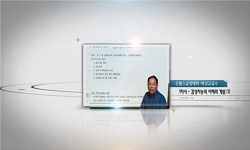본 연구는 신체활동을 활용한 수업이 초등학교 1학년 아동의 정서지능에 영향을 미치는지 알아보고 저학년 담임교사에게 정서지능 발달에 도움이 되는 신체활동에 대한 기초 자료를 제공하...
http://chineseinput.net/에서 pinyin(병음)방식으로 중국어를 변환할 수 있습니다.
변환된 중국어를 복사하여 사용하시면 됩니다.
- 中文 을 입력하시려면 zhongwen을 입력하시고 space를누르시면됩니다.
- 北京 을 입력하시려면 beijing을 입력하시고 space를 누르시면 됩니다.

신체활동이 초등학생의 정서지능에 미치는 영향 = The Influence of Physical Activities on Elementary Students' Emotional Intelligence
한글로보기https://www.riss.kr/link?id=A76491073
- 저자
- 발행기관
- 학술지명
- 권호사항
-
발행연도
2009
-
작성언어
Korean
- 주제어
-
KDC
374.05
-
등재정보
KCI등재후보
-
자료형태
학술저널
-
수록면
61-79(19쪽)
-
KCI 피인용횟수
6
- DOI식별코드
- 제공처
- 소장기관
-
0
상세조회 -
0
다운로드
부가정보
국문 초록 (Abstract)
첫째, 신체활동을 적용한 실험집단과 비교집단 간의 사후검사를 실시한 결과 자기인식 영역에서 비교반보다 실험반의 정서지능 수준이 매우 높아졌음을 확인할 수 있었다. 둘째, 신체활동을 적용한 실험집단과 비교집단 간의 사후검사를 실시한 결과 자기조절 영역에서 비교반보다 실험반의 정서지능 수준이 매우 높아졌음을 확인할 수 있었다. 셋째, 신체활동을 적용한 실험집단과 비교집단 간의 사후검사를 실시한 결과 타인인식 영역에서 비교반보다 실험반의 정서지능 수준이 매우 높아졌음을 확인할 수 있었다. 넷째, 신체활동을 적용한 후 실험집단과 비교집단 간의 사후검사를 실시한 결과 타인조절 영역에서 비교반보다 실험반의 정서지능 수준이 매우 높아졌음을 확인할 수 있었다. 따라서 신체활동을 활용한 수업은 정서지능의 향상에 긍정적인 효과가 있다는 결론을 얻을 수 있었다.
본 연구는 신체활동을 활용한 수업이 초등학교 1학년 아동의 정서지능에 영향을 미치는지 알아보고 저학년 담임교사에게 정서지능 발달에 도움이 되는 신체활동에 대한 기초 자료를 제공하기 위하여 실시하였다. 본 연구를 위하여 신체활동 수업 전과 후에 신뢰도와 타당도를 검증한 정서지능 검사지 를 투입하여 효과를 검증하였으며 통계 기법으로는 t-test를 실시하였다. 본 연구의 결과 다음과 같은 결론을 얻을 수 있었다.
첫째, 신체활동을 적용한 실험집단과 비교집단 간의 사후검사를 실시한 결과 자기인식 영역에서 비교반보다 실험반의 정서지능 수준이 매우 높아졌음을 확인할 수 있었다. 둘째, 신체활동을 적용한 실험집단과 비교집단 간의 사후검사를 실시한 결과 자기조절 영역에서 비교반보다 실험반의 정서지능 수준이 매우 높아졌음을 확인할 수 있었다. 셋째, 신체활동을 적용한 실험집단과 비교집단 간의 사후검사를 실시한 결과 타인인식 영역에서 비교반보다 실험반의 정서지능 수준이 매우 높아졌음을 확인할 수 있었다. 넷째, 신체활동을 적용한 후 실험집단과 비교집단 간의 사후검사를 실시한 결과 타인조절 영역에서 비교반보다 실험반의 정서지능 수준이 매우 높아졌음을 확인할 수 있었다. 따라서 신체활동을 활용한 수업은 정서지능의 향상에 긍정적인 효과가 있다는 결론을 얻을 수 있었다.
다국어 초록 (Multilingual Abstract)
The physical activity program was applied over 16 times for 8 weeks from March 2008 to May 2008. The test group had only undergone the physical activity program two times a week.
The instrument used in this study was the Emotional Intelligence Checklist developed by Lee, Byung-Rae(1997), which measures a child's emotional intelligence. The effect of physical activity on an Elementary Student's Emotional Intelligence is a processed pre-test, its capability to self regulate is a processed post-test, as are other perceptions, and other regulations and their effect on interpersonal relations. Information about this study was processed by SPSS WIN13.0
Version to verify the research problem. The results of this study were as follows.
(1) The class that performed physical activity were positively influenced in terms of self perception. (2) The class that performed physical activity were positively influenced in terms of self regulation. (3) The class that performed physical activity were positively influenced in terms of others' perceptions. (4) The class that performed physical activity were positively influenced in terms of other regulations.
The purpose of this study is to examine the effects of physical activity on first grade elementary school students' emotional intelligence. For the purposes of the study, I surveyed 58 students from two first grade classes at the Y elementary school i...
The purpose of this study is to examine the effects of physical activity on first grade elementary school students' emotional intelligence. For the purposes of the study, I surveyed 58 students from two first grade classes at the Y elementary school in Gyeonggido, Gimpo. The students were divided into two groups: the test group and comparative group. The test group had undergone a physical activity program and the other group had experienced the general school curriculum.
The physical activity program was applied over 16 times for 8 weeks from March 2008 to May 2008. The test group had only undergone the physical activity program two times a week.
The instrument used in this study was the Emotional Intelligence Checklist developed by Lee, Byung-Rae(1997), which measures a child's emotional intelligence. The effect of physical activity on an Elementary Student's Emotional Intelligence is a processed pre-test, its capability to self regulate is a processed post-test, as are other perceptions, and other regulations and their effect on interpersonal relations. Information about this study was processed by SPSS WIN13.0
Version to verify the research problem. The results of this study were as follows.
(1) The class that performed physical activity were positively influenced in terms of self perception. (2) The class that performed physical activity were positively influenced in terms of self regulation. (3) The class that performed physical activity were positively influenced in terms of others' perceptions. (4) The class that performed physical activity were positively influenced in terms of other regulations.
목차 (Table of Contents)
- I. 서론
- II. 연구 방법
- 1. 연구 대상
- 2. 연구도구 및 절차
- 4. 자료 처리
- I. 서론
- II. 연구 방법
- 1. 연구 대상
- 2. 연구도구 및 절차
- 4. 자료 처리
- III. 연구 결과 및 해석
- 1. 정서지능의 집단별 사전검사
- 2. 정서지능의 집단별 사후검사
- 3. 정서지능의 집단간 사전·사후검사 차의 비교 분석
- IV. 논의
- V. 결론 및 제언
- 참고문헌
- Abstract
- 부록 1 교사용 정서지능 평정 척도
참고문헌 (Reference)
1 임종은, "초등학교 저학년의 기초체력 증진을 위한 체육놀이 활동과 가정 체육프로그램 개발 및 적용" 15 : 117-150, 2005
2 김경희, "정서란 무엇인가" 민음사 1995
3 오현수, "유아의 신체활동이 정서지능과 운동적성에 미치는 영향" 이화여자대학교 1999
4 김완선, "유아의 신체활동이 정서지능 및 사회성숙도에 미치는 영향" 상명대학교 2000
5 최진희, "아동의 심리적 가정환경과 정서지능과의 관계" 숙명여자대학교 2003
6 박유민, "아동의 신체활동이 감성지능에 미치는 영향" 동아대학교 2001
7 김병식, "아동의 신체 활동 참여가 정서 지능 발달에 미치는 효과" 25 : 353-380, 2002
8 이병래, "부모의 심리적 자세와 유아의 정서지능과의 관계" 중앙대학교 1997
9 강윤선, "동시 활동 프로그램이 초등학교 1학년 유아의 정서지능 향상에 미치는 영향" 서울교육대학교 2007
10 Salovey, P, "Emotional intelligence : Imagination, ognition and Personality" New York Press 1990
1 임종은, "초등학교 저학년의 기초체력 증진을 위한 체육놀이 활동과 가정 체육프로그램 개발 및 적용" 15 : 117-150, 2005
2 김경희, "정서란 무엇인가" 민음사 1995
3 오현수, "유아의 신체활동이 정서지능과 운동적성에 미치는 영향" 이화여자대학교 1999
4 김완선, "유아의 신체활동이 정서지능 및 사회성숙도에 미치는 영향" 상명대학교 2000
5 최진희, "아동의 심리적 가정환경과 정서지능과의 관계" 숙명여자대학교 2003
6 박유민, "아동의 신체활동이 감성지능에 미치는 영향" 동아대학교 2001
7 김병식, "아동의 신체 활동 참여가 정서 지능 발달에 미치는 효과" 25 : 353-380, 2002
8 이병래, "부모의 심리적 자세와 유아의 정서지능과의 관계" 중앙대학교 1997
9 강윤선, "동시 활동 프로그램이 초등학교 1학년 유아의 정서지능 향상에 미치는 영향" 서울교육대학교 2007
10 Salovey, P, "Emotional intelligence : Imagination, ognition and Personality" New York Press 1990
11 Goleman,D, "Emotional Intelligence" Bantam Books 1995
12 문용린, "EQ가 높으면 성공이 보인다" 글이랑 1997
동일학술지(권/호) 다른 논문
-
- 이화여자대학교 교과교육연구소
- 박인숙
- 2009
- KCI등재후보
-
정의 공동체 접근(Just Community Approach)에 대한 도덕 교육적 고찰
- 이화여자대학교 교과교육연구소
- 박병춘
- 2009
- KCI등재후보
-
- 이화여자대학교 교과교육연구소
- 김연희
- 2009
- KCI등재후보
-
부산지역 공립 과학관에 대한 초등학생들과 초등교사들의 인식 및 요구 조사
- 이화여자대학교 교과교육연구소
- 이석희
- 2009
- KCI등재후보
분석정보
인용정보 인용지수 설명보기
학술지 이력
| 연월일 | 이력구분 | 이력상세 | 등재구분 |
|---|---|---|---|
| 2026 | 평가예정 | 재인증평가 신청대상 (재인증) | |
| 2020-01-01 | 평가 | 등재학술지 유지 (재인증) |  |
| 2017-03-09 | 학회명변경 | 영문명 : Research Institute of Curriculum Instruction -> Research Institute of Curriculum & Instruction |  |
| 2017-01-01 | 평가 | 등재학술지 유지 (계속평가) |  |
| 2014-01-09 | 학술지명변경 | 외국어명 : 미등록 -> Journal of Research in Curriculum Instruction |  |
| 2013-01-01 | 평가 | 등재학술지 유지 (등재유지) |  |
| 2010-01-01 | 평가 | 등재학술지 선정 (등재후보2차) |  |
| 2009-01-01 | 평가 | 등재후보 1차 PASS (등재후보1차) |  |
| 2007-01-01 | 평가 | 등재후보학술지 선정 (신규평가) |  |
학술지 인용정보
| 기준연도 | WOS-KCI 통합IF(2년) | KCIF(2년) | KCIF(3년) |
|---|---|---|---|
| 2016 | 1.07 | 1.07 | 1.19 |
| KCIF(4년) | KCIF(5년) | 중심성지수(3년) | 즉시성지수 |
| 1.2 | 1.17 | 1.432 | 0.29 |




 RISS
RISS 스콜라
스콜라







